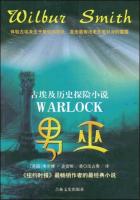"We have a striking illustration of Jupiter's enormous mass,"said Cortlandt,as the apparent diameter of the mighty planet rapidly decreased,"in the fact that notwithstanding its numerous moons,it still rotates so rapidly.We know that the earth's days were formerly but half or a quarter as long as now,having lasted but six or eight hours.The explanation of the elongation is simple:the earth rotates in about twenty-four hours,while the moon encircles it but once in nearly twenty-eight days,so that our satellite is continually drawing the oceans backward against its motion.These tidal brakes acting through the friction of the water on the bottom,its unequal pressure,and the impact of the waves on the shore,are continually retarding its rotation,so that the day is a fraction of a second longer now than it was in the time of Caesar.This same action is of course taking place in Jupiter and the great planets,in this case there being five moons at work.Our moon,we know,rotates on its axis but once while it revolves about the earth,this being no doubt due to its own comparative smallness and the great attraction of the earth,which must have produced tremendous tides before the lunar oceans disappeared from its surface."In crossing the orbits of the satellites,they passed near Ganymede,Jupiter's largest moon.
"This,"said Cortlandt,"was discovered by Galileo in 1610.It is three thousand four hundred and eighty miles in diameter,while our moon is but two thousand one hundred and sixty,revolves at a distance of six hundred and seventy-eight thousand three hundred miles from Jupiter,completes its revolution in seven days and four hours,and has a specific gravity of 1.87."In passing,they observed that Ganymede possessed an atmosphere,and continents and oceans of large area.
"Here,"said Bearwarden,"we have a body with a diameter about five hundred miles greater than the planet Mercury.Its size,light specific gravity,atmosphere,and oceans seem to indicate that it is less advanced than that planet,yet you think Jupiter has had a longer separate existence than the planets nearer the sun?""Undoubtedly,"said Cortlandt."Jupiter was condensed while in the solar-system nebula,and began its individual existence and its evolutionary career long before Mercury was formed.The matter now in Ganymede,however,doubtless remained part of the Jupiter-system nebula till after Mercury's creation,and,being part of so great a mass,did not cool very rapidly.I should say that this satellite has about the same relation to Jupiter that Jupiter has to the sun,and is therefore younger in point of time as well as of development than the most distant Callisto,and older,at all events in years,than Europa and Io,both of which are nearer.This supposition is corroborated by the fact that Europa,the smallest of these four,is also the densest,having a specific gravity of 2.14,its smallness having enabled it to overtake Ganymede in development,notwithstanding the latter's start.In the face of the evidence before us we must believe this,or else that,perhaps,as in the case of the asteroid Hilda,something like a collision has rejuvenated it.This might account for its size,and for the Nautical Almanac's statement that there is a 'small and variable'inclination to its orbit,while Io and Europa revolve exactly in the plane of Jupiter's equator."They had about as long a journey before them as they had already made in going from the earth to Jupiter.The great planet soon appeared as a huge crescent,since it was between them and the sun;its moons became as fifth-and sixth-magnitude stars,and in the evening of the next day Jupiter's disk became invisible to the unaided eye.Since there were no way stations,in the shape of planets or asteroids,between Jupiter and Saturn,they kept the maximum repulsion on Jupiter as long as possible,and moved at tremendous speed.Saturn was somewhat in advance of Jupiter in its orbit,so that their course from the earth had been along two sides of a triangle with an obtuse angle between.During the next four terrestrial days they sighted several small comets,but spent most of their time writing out their Jovian experiences.
During the sixth day Saturn's rings,although not as much tilted as they would be later in the planet's season,presented a most superb sight,while they spun in the sun's rays.Soon after this the eight moons became visible,and,while slightly reducing the Callisto's speed,they crossed the orbits of Iapetus,Hyperion,and Titan,when they knew they were but seven hundred and fifty thousand miles from Saturn.















